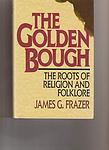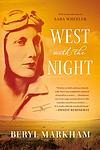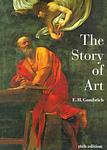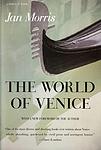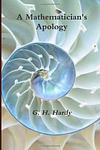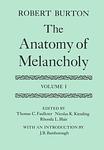The Greatest British "Nonfiction" Books of All Time
Click to learn how this list is calculated.
This list represents a comprehensive and trusted collection of the greatest books. Developed through a specialized algorithm, it brings together 300 'best of' book lists to form a definitive guide to the world's most acclaimed books. For those interested in how these books are chosen, additional details can be found on the rankings page.
Genres
Countries
Date Range
Reading Statistics
Click the button below to see how many of these books you've read!
Download
If you're interested in downloading this list as a CSV file for use in a spreadsheet application, you can easily do so by clicking the button below. Please note that to ensure a manageable file size and faster download, the CSV will include details for only the first 500 books.
Download-
26. Mere Christianity by C. S. Lewis
"Mere Christianity" is a theological book that explores the common ground upon which all of those of Christian faith stand. It provides an intellectual defense of Christianity that centers on the Law of Nature, arguing that God is behind this law. The book also explores Christian values, the cardinal virtues, and the theological virtues, ultimately arguing for the reasonableness of Christianity. The final section of the book discusses the doctrine of the Trinity and the process of becoming a Christian.
The 799th Greatest Book of All Time -
27. Common Sense by Thomas Paine
This influential pamphlet, published in 1776, played a crucial role in persuading the colonists of the Thirteen Colonies to declare independence from Britain. It argues for the democratic system of government, criticizes monarchy and hereditary succession, and advocates for the inherent rights and freedoms of individuals. The text uses plain language to make complex political ideas accessible to the average citizen, promoting the idea that the colonies have a right to be an independent nation.
The 818th Greatest Book of All Time -
28. The Golden Bough by James George Frazer
"The Golden Bough" is a comprehensive study on mythology and religion, exploring the common themes found in different cultures around the world. The author uses a wide range of sources to argue that human belief progressed through three stages: primitive magic, replaced by religion, which in turn was replaced by science. The book delves into various rituals and customs, including the concept of the dying god in mythology and the role of fertility rites in agriculture. The author's theories have had a profound influence on both literature and anthropology.
The 821st Greatest Book of All Time -
29. The Open Society by Karl Popper
This book is a critique of totalitarianism and a defense of liberal democracy. The author argues against the concept of a perfect, immutable society, instead advocating for an "open society" that allows for constant change and improvement. He criticizes theories of historical determinism and the notion of "the collective", emphasizing the importance of individual freedom and human rights. The book also examines and challenges the philosophies of Plato, Hegel, and Marx, linking their ideas to the rise of fascism and communism in the 20th century.
The 849th Greatest Book of All Time -
30. West With the Night by Beryl Markham
The book is a memoir of a British-born woman who grew up in Kenya during the early 20th century. She recounts her unconventional upbringing, her passion for horses, and her career as a bush pilot. The narrative is filled with vivid descriptions of the African landscape and wildlife, as well as her personal adventures and encounters. The book culminates with her historic solo flight across the Atlantic from east to west.
The 865th Greatest Book of All Time -
31. The Road to Oxiana by Robert Byron
This travelogue chronicles a journey through Persia and Afghanistan in the 1930s, capturing the author's keen observations of the architecture, landscapes, and people he encounters. The narrative combines historical research, personal anecdotes, and vivid descriptions, providing a unique insight into these regions during this period. The author's witty and engaging style, combined with his passion for architecture, makes this book not just a travel diary but a valuable piece of cultural and historical documentation.
The 870th Greatest Book of All Time -
32. Reflections on the Revolution in France by Edmund Burke
This book is a political pamphlet written in the 18th century, where the author criticizes the French Revolution, arguing that it has gone too far in its quest for radical change. He asserts that the revolutionaries, in their rejection of tradition and their embrace of abstract notions of liberty and equality, have overlooked the complexities of real social and political life. The author advocates for gradual, prudent reform rather than sudden, violent change and emphasizes the importance of tradition and inherited institutions.
The 872nd Greatest Book of All Time -
33. The Worst Journey in the World by Apsley Cherry-Garrard
"The Worst Journey in the World" is a gripping account of the Terra Nova Expedition to the South Pole in 1910-1913. The book vividly describes the perilous journey undertaken by a team of explorers, their struggles with brutal weather conditions, and the tragic loss of their leader and four other members on their return from the Pole. The narrative is not only about physical survival in harsh conditions, but also about the psychological toll of such an expedition, making it a timeless testament to human endurance and spirit.
The 894th Greatest Book of All Time -
34. The Story of Art by E. H. Gombrich
"The Story of Art" is a comprehensive guide to the history of art, covering a vast span of time from prehistoric art to contemporary movements. The book provides insights into the cultural, historical, and social contexts that have influenced the creation of art throughout various periods. It offers detailed analysis of major works and styles, and discusses the techniques used by artists from different eras. It is not only an exploration of the evolution of art but also an attempt to understand the motivations and inspirations of the artists behind the works.
The 926th Greatest Book of All Time -
35. Down and Out in Paris and London by George Orwell
This book is a semi-autobiographical work that explores the harsh realities of poverty in two of Europe's most renowned cities. The protagonist, a struggling writer, first experiences the squalor, hardship, and vagabond lifestyle of Paris, where he works menial jobs and often goes hungry. The narrative then shifts to London, where the protagonist lives as a tramp, navigating the oppressive rules of homeless shelters and the stigma of poverty. The book is a deeply empathetic and insightful exploration of the often invisible world of the impoverished.
The 936th Greatest Book of All Time -
36. Rights of Man by Thomas Paine
This influential work is a passionate defense of the French Revolution and a detailed examination of the concept of human rights. The author argues against the idea of monarchy and hereditary succession, contending that government should be a reflection of the people's will and that it should promote equality and social welfare. The book also explores the role of government in society, the nature of civil liberties, and the importance of a written constitution.
The 960th Greatest Book of All Time -
37. A Study of History by Arnold J. Toynbee
"A Study of History" is an extensive 12-volume universal history, exploring the development and decay of world civilizations throughout the ages. The author proposes that civilizations rise and fall based on their responses to challenges, both physical and social. The book also puts forth the idea that religions play a crucial role in the rise of civilizations and that the failure of a civilization's creative power can lead to its decline. The work is renowned for its scholarly depth and its controversial theories about the cyclical nature of history.
The 980th Greatest Book of All Time -
38. Selected Essays of T. S. Eliot by T. S. Eliot
This book is a collection of critical and reflective essays by a renowned poet and literary critic. The author explores a variety of topics including literature, culture, society, and religion. The essays offer an insightful and thought-provoking commentary on the works of other writers, as well as the author's own views on literary theory and criticism. The collection serves as an important resource for understanding the author's intellectual development and his influence on 20th century literature and criticism.
The 1002nd Greatest Book of All Time -
39. The Life of Charlotte Brontë by Elizabeth Gaskell
This biography provides an intimate look into the life of renowned author Charlotte Brontë. It covers her early years growing up in a Yorkshire parsonage, her struggles with poverty and the tragic deaths of her siblings, her development as a writer, and her eventual success. The book also delves into Brontë's relationships, particularly her close bond with her sisters, and her unrequited love for her married professor. The narrative is both a tribute to Brontë's resilience and talent, and a poignant portrayal of the hardships faced by women in the 19th century.
The 1010th Greatest Book of All Time -
40. Orthodoxy by G. K. Chesterton
"Orthodoxy" is a classic work of Christian apologetics that explores and defends the beliefs that are central to Christian faith. The author presents his personal journey towards faith, arguing for the reasonableness of Christianity. He challenges popular assumptions of his time about religion, faith, and the world while presenting a compelling case for orthodox Christian belief, using both logic and wit. The book combines personal anecdotes, historical critique, and philosophical discourse to present a deeply intellectual and sincere exploration of Christianity.
The 1023rd Greatest Book of All Time -
41. De Profundis by Oscar Wilde
"De Profundis" is a lengthy letter written by a man during his imprisonment for gross indecency, reflecting on his past life and experiences. The letter is addressed to his former lover, and through it, he expresses his feelings of regret, despair, and hope. The man discusses his spiritual journey during incarceration, his newfound understanding of suffering, and his changing views on art and morality. The work is a profound exploration of love, forgiveness, redemption, and the human spirit's resilience.
The 1036th Greatest Book of All Time -
42. The Voyage of the Beagle by Charles Darwin
This book is a vivid and exciting travel memoir as well as a detailed scientific field journal covering biology, geology, and anthropology that demonstrates the author’s keen powers of observation, written at a time when Western Europeans were still discovering and exploring much of the rest of the world. The author's five-year journey took him from the coasts of South America, Australia, and Africa to the South Pacific islands, during which he collected and documented the natural history of these areas. The voyage and the specimens he brought back would later form the basis for his famous theory of evolution.
The 1039th Greatest Book of All Time -
43. A Time Of Gifts by Patrick Leigh Fermor
The book is a vivid memoir that chronicles the adventures of a young man as he embarks on a remarkable journey on foot across Europe in the 1930s. Starting from the Hook of Holland, he traverses through landscapes and cities, encountering a diverse tapestry of cultures, languages, and historical remnants. Along the way, he is welcomed by a variety of individuals, from aristocrats to peasants, who enrich his experience with their stories and hospitality. His travels provide not only a physical journey through the continent but also a journey through time, as he reflects on the complexities of Europe's past and the ominous shadows cast by the approaching Second World War.
The 1117th Greatest Book of All Time -
44. Two Treatises of Government by John Locke
"Two Treatises of Government" is a seminal work in political philosophy, which outlines the author's theories on social contract and natural rights. The first treatise refutes the divine rights of kings, arguing that political power does not come from God but from the people. The second treatise introduces the idea of a government that exists to protect the rights of its citizens, particularly life, liberty, and property. The author posits that if a government fails to protect these rights, the people have the right to overthrow it. This work greatly influenced the development of democratic thought and the structure of modern democratic governments.
The 1139th Greatest Book of All Time -
45. Venice by Jan Morris
This book provides an in-depth exploration of the city of Venice, delving into its history, culture, architecture, and its unique geographical attributes. It paints a vivid picture of the city in its glory days, as well as its present state, with all its beauty and decay. The author's personal experiences and observations are woven into the narrative, offering readers an intimate and engaging tour of the city. The book also discusses the city's influence on art, literature, and music, and its enduring allure for travelers from around the world.
The 1160th Greatest Book of All Time -
46. The Face of Battle by John Keegan
"The Face of Battle" is a military history book that examines warfare from the perspective of the common soldier. It explores three significant battles in detail - the Battle of Agincourt in 1415, the Battle of Waterloo in 1815, and the Battle of the Somme in 1916. By focusing on the experiences of the individual soldiers, the book provides readers with a unique insight into the reality of war, the strategies employed, the conditions faced by soldiers, the impact of technological advancements on warfare, and the human cost of these historic battles.
The 1193rd Greatest Book of All Time -
47. A Mathematician's Apology by G. H. Hardy
"A Mathematician's Apology" is a deeply personal reflection on the beauty and importance of pure mathematics. The author, a renowned mathematician, defends the pursuit of mathematics for its own sake, arguing it's a creative art form akin to poetry or painting. The book provides insight into the mind of a working mathematician and the aesthetic appeal of mathematics, while also discussing its practical utility and the author's own work on number theory and the theory of prime numbers.
The 1229th Greatest Book of All Time -
48. The Anatomy of Melancholy by Robert Burton
"The Anatomy of Melancholy" is a comprehensive and detailed exploration of melancholy, a term used to describe a variety of mental states, including depression, anxiety, and sadness. The author examines the causes, symptoms, and treatments of melancholy from a variety of perspectives, incorporating elements of psychology, philosophy, history, and literature. The book is notable for its extensive use of classical sources, its humorous and satirical style, and its profound insights into human nature and the human condition.
The 1234th Greatest Book of All Time -
49. Dialogues Concerning Natural Religion by David Hume
This philosophical work is a series of discussions between three characters who explore the nature of God's existence through the lens of empirical evidence and reason. The dialogues delve into arguments for and against the existence of a divine creator, touching on the problem of evil, the argument from design, and the limits of human understanding. Through these conversations, the text critically examines the rational basis for religious belief, questioning the traditional arguments for God's existence and highlighting the complexities and contradictions inherent in theological explanations of the universe. The work is a seminal contribution to the philosophy of religion, showcasing the author's skepticism towards religious dogma and his commitment to empirical inquiry.
The 1234th Greatest Book of All Time -
50. Small Is Beautiful: Economics as if People Mattered by E. F. Schumacher
This book is a collection of essays that challenge the established economic paradigm, arguing for a shift towards smaller, more sustainable systems. The author criticizes conventional capitalism for its focus on profit and growth, suggesting instead that economies should prioritize human well-being and environmental health. He presents a vision of "Buddhist economics," where work is viewed as a means to personal development and fulfillment, not just income generation. The book also offers practical solutions for implementing this new economic model, such as decentralization, appropriate technologies, and renewable energy.
The 1251st Greatest Book of All Time
Reading Statistics
Click the button below to see how many of these books you've read!
Download
If you're interested in downloading this list as a CSV file for use in a spreadsheet application, you can easily do so by clicking the button below. Please note that to ensure a manageable file size and faster download, the CSV will include details for only the first 500 books.
Download

